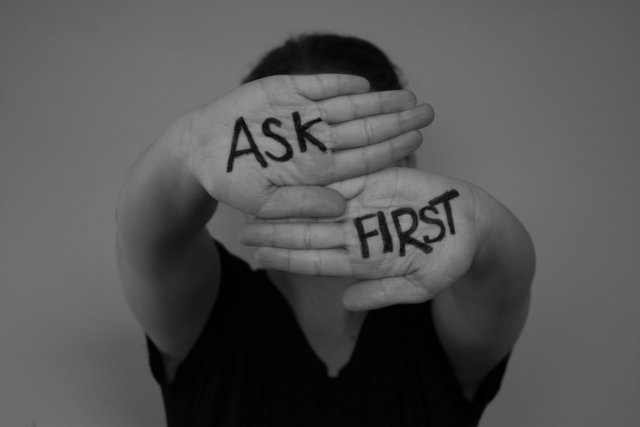It is time to have the talk — one that goes beyond birds and bees.
It is time to have a discussion with our young children about bodily autonomy and respect for boundaries. It is time to educate our teens about behavior that is more than “just sex” — the kind that could land them behind bars or in a hospital bed undergoing a rape examination.
A nationwide firestorm of victims speaking out about sexual assault has revealed how this issue affects everyone, not just those in the public eye. Most of us agree that rape and sexual assault are wrong, but we often fail to recognize and understand the societal conditioning that leads to these crimes.
We teach our girls from a very young age about how to protect themselves: go out in groups, carry car keys like a weapon, never leave drinks unattended, be aware of surroundings, don’t wear anything too revealing, smile and be polite when receiving a compliment so not to provoke, but be careful about sending the wrong message. We even teach them how to defend themselves during an attack. But we rarely teach our boys not be sexually aggressive in the first place.
The problem with this approach is that it sends a message that assault is inevitable. “Boys will be boys, and they cannot possibly control their sexual impulses.” By only teaching our girls to expect assault and be prepared for it, we place all the responsibility on them. Instead, we should be teaching ALL of our children about the intricacies of sexual assault and the laws that hold them accountable.
‘They wish they had known’
According to the Department of Justice, young women between the ages of 16 and 24 experience the highest rate of intimate partner violence. According to one national study, 29 percent of the young women surveyed who had ever been in a relationship said they had been pressured to engage in sexual activity they did not want. Experiencing dating violence is associated with an increase of perilous behavior, health risks and adolescent and unintended pregnancy.
In writing this piece, I called forensic psychotherapist Kimberly Kline, who works to rehabilitate sexual offenders. She told me that rape is “much more complex” than typically presented in popular culture.
“My clients tell me time and time again that, after learning about consent, they wish they had been taught so many of these things in school. They wish they had known,” Kline said. “Rape is very rarely the made-for-TV version where the scary man jumps out of the bushes and attacks a woman at gunpoint.”
Before you say, “that will never be my child”, Kline’s clients range from 18 to 78-year-old men and a handful of women. They are doctors, attorneys, teachers, police officers, students, blue collar workers, you name it. There is no “profile”.
But despite knowing the ramifications, we often avoid discussing the root of the problem. Doing so makes us uncomfortable because it forces us to examine our own behavior and that of those we care about. It can cause us to revisit our personal experiences and traumas. It makes us realize what our children could be subjected to.
Yet we must go through these growing pains to evolve into a better society regarding sexual behavior and relationships. Parents, teachers, administrators, bosses, clergy members and leaders all need to start having “the talk” about what leads to sexual assault. And then we must give our children the tools and knowledge to help stop it.
Talking consent: A path to prevention
In Oklahoma, lawmakers may consider a bill during the 2018 legislative session that aims to educate students about recognizing and preventing sexual violence. House Bill 2734 by Rep. Jacob Rosecrants (D-Norman) would establish age-appropriate curriculum and require instructors to undergo training in consent and healthy relationships with the goal of increasing teacher-student discussions. The bill would ensure the material is medically accurate and approved by the Department of Health. Federal funds available through Title IV-A of the Every Student Succeeds Act. could be used at the state level to implement the program.
This kind of education would peel back the ugly surface of rape to reveal intricacies that often get brushed into the so-called “gray area” of sexual assault. It would address subjects like communication skills, emotional health and accountability. It would empower students to protect their bodies in clear ways and differentiate between unfavorable behavior and what is unlawful. It would describe ways to recognize enthusiastic sexual consent and know when not to proceed.
Rosecrants, the bill’s author, is a former teacher. Alongside Stacey Wright, founder of the grassroots group YES ALL Daughters, Rosecrants wrote the bill with 17-year-old Lauren Atkins, for whom the act would be named “Lauren’s Law” if passed.
Lauren was assaulted by a boy while she was passed out at a party — an occurrence far too common among young people. She confronted him the next day saying, “If a girl can’t say yes, then that means no.” And according to the law, Atkins was exactly right. The boy, by his own admission, had no idea it was a crime to engage in sexual activity with an unconscious or incapacitated person.
Retired Air Force Chief Master Sergeant Rodney McKinley believes teaching consent at age-appropriate levels could reduce sex crimes later in life. Holding a degree in human relations and having first-hand experience working with service members concerning sexual assault issues, McKinley was asked to serve on the Defense Advisory Committee on Investigations, Prosecution and Defense of Sexual Assault in the Armed Forces.
“One-third of sexual assault victims separate from the military within seven months of the incident,” McKinley told me when I asked about the topic. “Our first objective is to take care of our people. But we cannot overlook the ramifications these issues have on the ability of our service members to do their jobs. When we lose good people, we also lose a huge investment.
“Education is key. It falls on all of us to reverse certain ways of thinking and teaching.”
Indeed. Consent education can and should be used in our schools to reverse societal conditioning that has led to a culture focused on aggressive pursuit of sex instead of respecting a partner’s needs, desires and boundaries.
House Bill 2734 would allow a curriculum that could protect all our children by providing knowledge on the core issues that give rise to sexual assault, rather than only treat the symptoms.
Yes All Daughters is sponsoring a petition in support of the bill. This is a discussion we must have as a society.






















